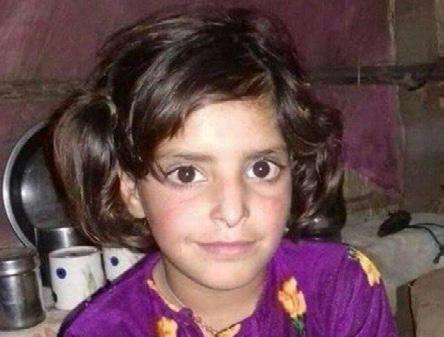
5 minute read
Australian support for Asifa
from 2018-05 Sydney (1)
by Indian Link
The call for justice that has roared in India against the repeated rape and murder of eight-year-old child
Asifa Banu in the country has been echoed here in Australia this week.
A group of 102 academics, writers, musicians and performing artists have voiced their protest against the terrible incident – and the Indian government’s slow response to it – in letters submitted to the Indian Consulates in Sydney and Melbourne.
Writer and academic Roanna Gonsalves, who was one of the signatories, told Indian Link, “You might think that it’s easy for us to live outside of India and make a casual comment now and then about affairs there. But we are connected by blood. India is our motherland and it is our duty to speak up.”
In the letter that was hand-delivered to Consulate Generals of India in Sydney and Melbourne on Monday, April 23, 2018, they state, “As concerned citizens of Australia and India, we are deeply invested in the ongoing health of our democracies, the growing bilateral relationship between the two nations, and in drawing attention to and addressing the damage being done to both under the current Indian government.”
Calling for ‘Zero Tolerance After Asifa’, they demanded “immediate action in providing justice to Asifa and all other victims of sexual violence, to provide support and compensation to their families, and to restore the faith of citizens and the international community in Indian democracy by bringing the perpetrators to justice immediately.”
The letter reads:
April 23, 2018
To,
The High Commissioner of India in Australia
Subject: Petition with respect to Asifa Banu’s torturous rape and murder and to protest against the current climate of ongoing political atrocities towards Muslims and other minority communities in India
Sir, We are writing this letter, to express our deepest sorrow and shock at the abduction, brutal and multiples rapes upon, and premeditated, cold-blooded murder of Asifa Banu, the eight-year old Indian girl from Kathua in the state of Jammu and Kashmir. Our condolences, belated and ineffectual as they are, go out to her family: Words fail to even imagine their indescribable pain as their daughter was sexually tortured for seven days, killed and dumped in a forest, and then denied burial in the local graveyard in January 2018.
Through this letter we express our anger, distress, and mute hopelessness at the unjustifiable delay and coverups in the investigations to bring justice for a minor from the Muslim Bakerwal nomadic tribe, whose murder is not only reported to be a sexually-based crime, but also politicallymotivated by a campaign of deep hatred and ongoing discriminations against Muslims and other minorities in the current Hindu-majority government.
We are equally outraged at the protection being provided to the accused, who belong to the Hindu community in Jammu and Kashmir, and whose members conspired to commit this horrific crime. This incident is one of the many heinous crimes being committed, reported and covered in domestic and international media, against members of the many minority communities of India on a regular basis ever since the current ruling government came to political power in 2014. The abuse of women and minors as fodder in these hate crimes, of using rape as a weapon of war against its own citizens, of engaging in overt and covert intimidation against those who dare to speak out, is the all-too-common face of the dastardly campaigns that seek to obliterate the existence of, and engage in a sustained drive against, Muslims and other minorities in India under the ruling Bharatiya Janata Party (BJP) government. We are a group of writers, artpractitioners, academics, and media professionals in Australia who are closely connected to India. As concerned citizens of Australia and India, we are deeply invested in the ongoing health of our democracies, the growing bilateral relationship between the two nations, and in drawing attention to and addressing the damage being done to both under the current Indian government.
We are appalled, outraged and ashamed at the way gender oppressions are appropriated, torture on minority groups are justified, and interventions into people’s daily lives, food habits and cultural practices are being committed with impunity in the name of Hinduism under the aegis of the ruling Bharatiya Janata Party, led by the Prime Minister, Mr Narendra Modi.
We are calling for ‘Zero Tolerance After Asifa’ and urging the Indian government, which you represent in Australia, to take immediate action in providing justice to Asifa and all other victims of sexual violence, to provide support and compensation to their families, and to restore the faith of citizens and the international community in Indian democracy by bringing the perpetrators to justice immediately.
Talking about how the idea came about, Gonsalves said, “It came from a place of sorrow and love for our motherland. We are shocked and saddened at the ongoing offences, particularly against minority communities.”
“It all started from general conversations. The topic kept coming up. We didn’t want an online petition like Change.org but something more direct to register our protest, as well as our condolences, sorrow and outrage. The cover-up was shocking: the incident happened in January and came to light only in April.”
Gonsalves added, “It is because of other people who spoke up in the past that we have the freedom to do so ourselves today. We’ve benefitted from other people’s activism, and now, it’s our turn to contribute.”
That the letter might be misconstrued as a step “against Modi” has crossed

Gonsalves’ mind. “Of course, it’s a huge risk; anti-Modi views are not taken lightly and many journalists are being silenced for voicing their opinions. But we have no connection with party politics, we are part of a growing number of people who are becoming concerned about the disturbing trends in India.”
Perhaps it’s this growing concern and furore that has resulted in an ordinance passed by India’s cabinet last week, according to which offenders who rape girls under the age of 12 may now be subject to death penalty. But Gonsalves remains unconvinced of the efficacy of the move.
“Death penalty makes for a great headline, but it will lead to more murders. Until now, women and children were being raped, now they’ll be raped and murdered. Who’s going to let the child live to be able to speak up? The death penalty was a kneejerk populist reaction, and it will not be a deterrent to crime. Education is the only solution,” she said.
Gonsalves is a well-known literary figure is Sydney, having arrived on the scene with her first book of short stories The Permanent Resident, that won the Multicultural NSW Award at the NSW Premier’s Literary Awards.

This isn’t the first time the writer has taken up activisim. Back in 2015, she had gathered along with members of the creative fraternity in India under the auspices of the Kochi-Muziris Biennale 2014 umbrella to also express their solidarity with persecuted Tamil novelist Perumal Murugan.
Gonsalves may be right about education being the only solution, but it’s one that will take years to implement. For now, it’s clear that the Indian diaspora has become more vocal about Indian issues and they are demanding that authorities sit up and take notice.








